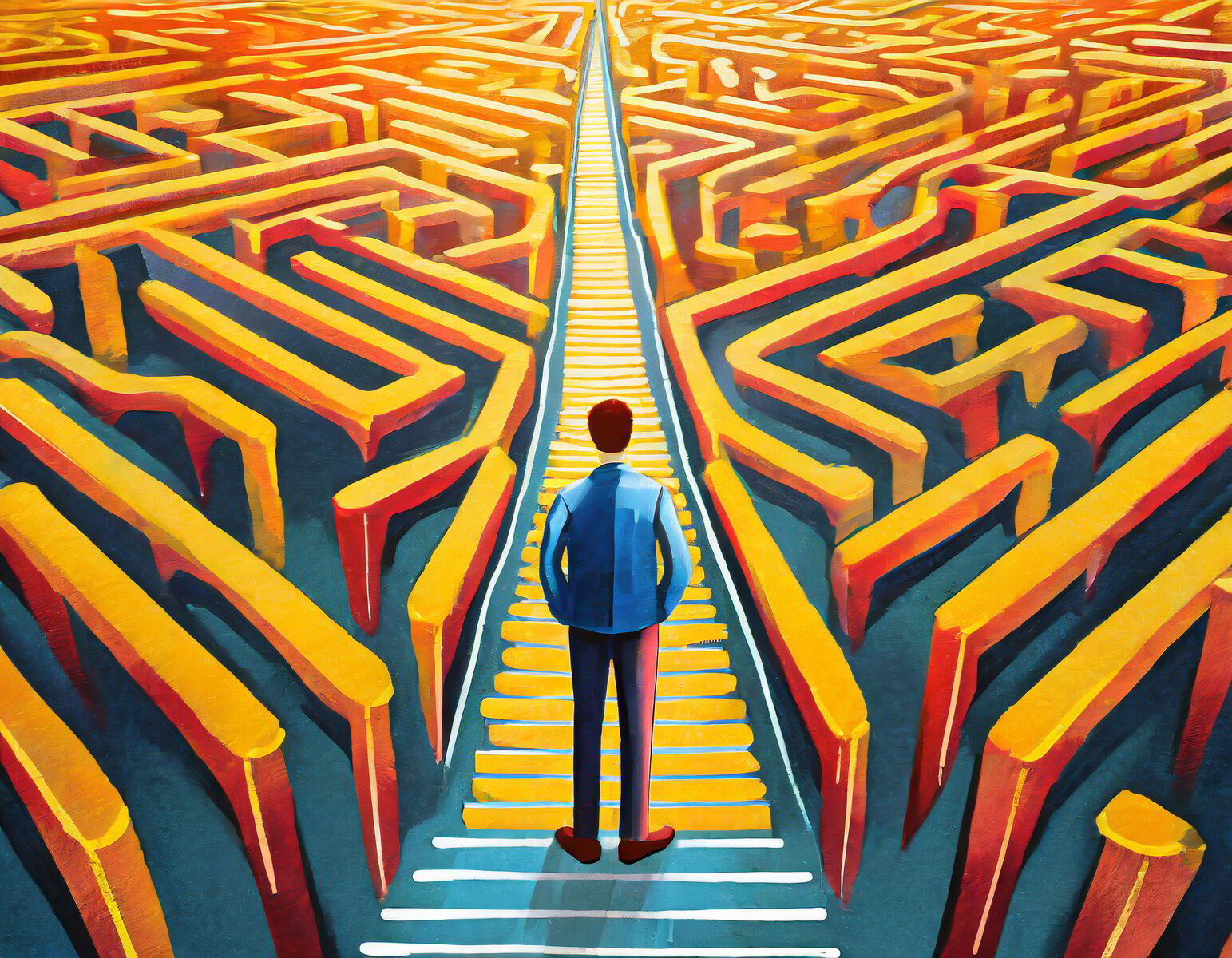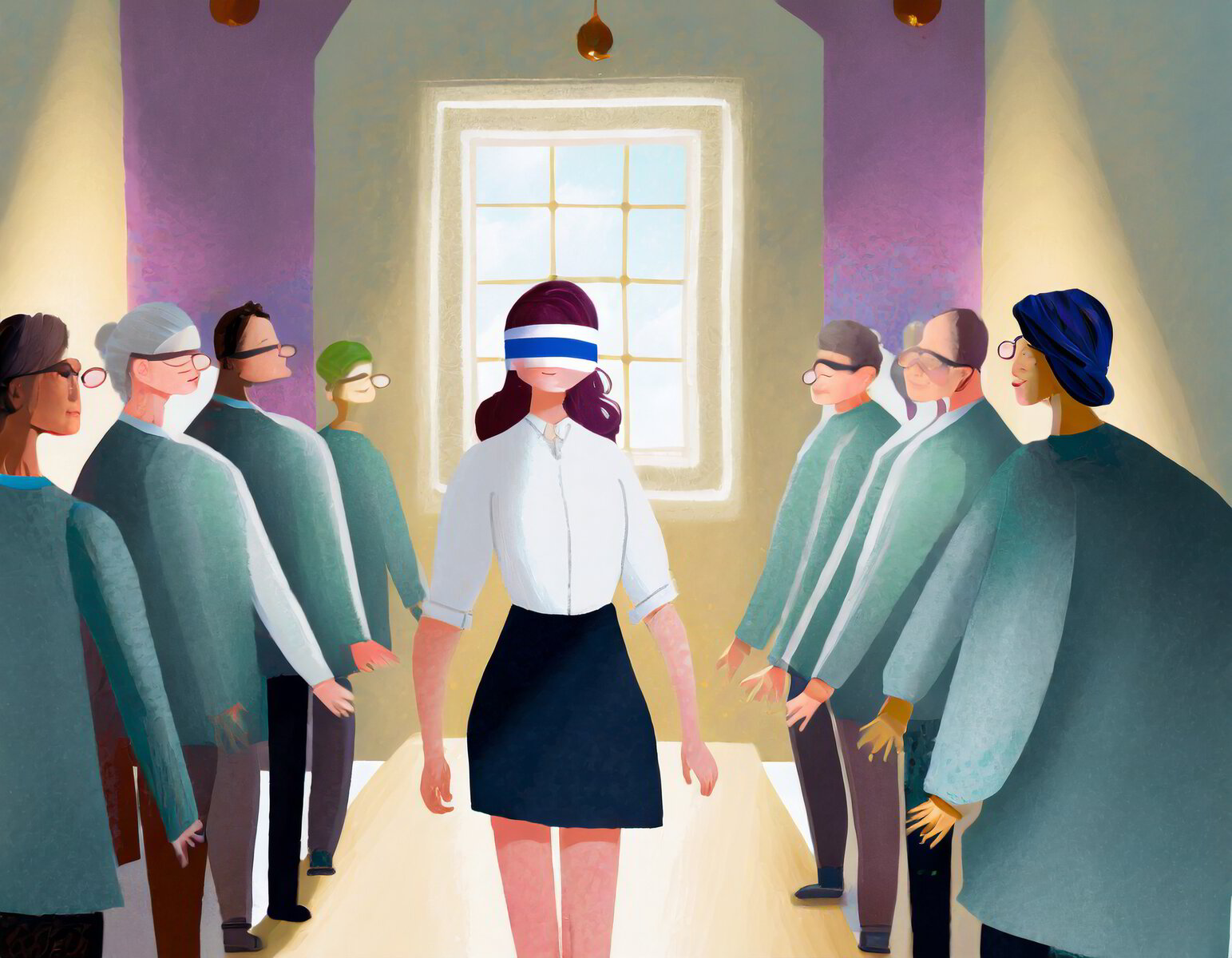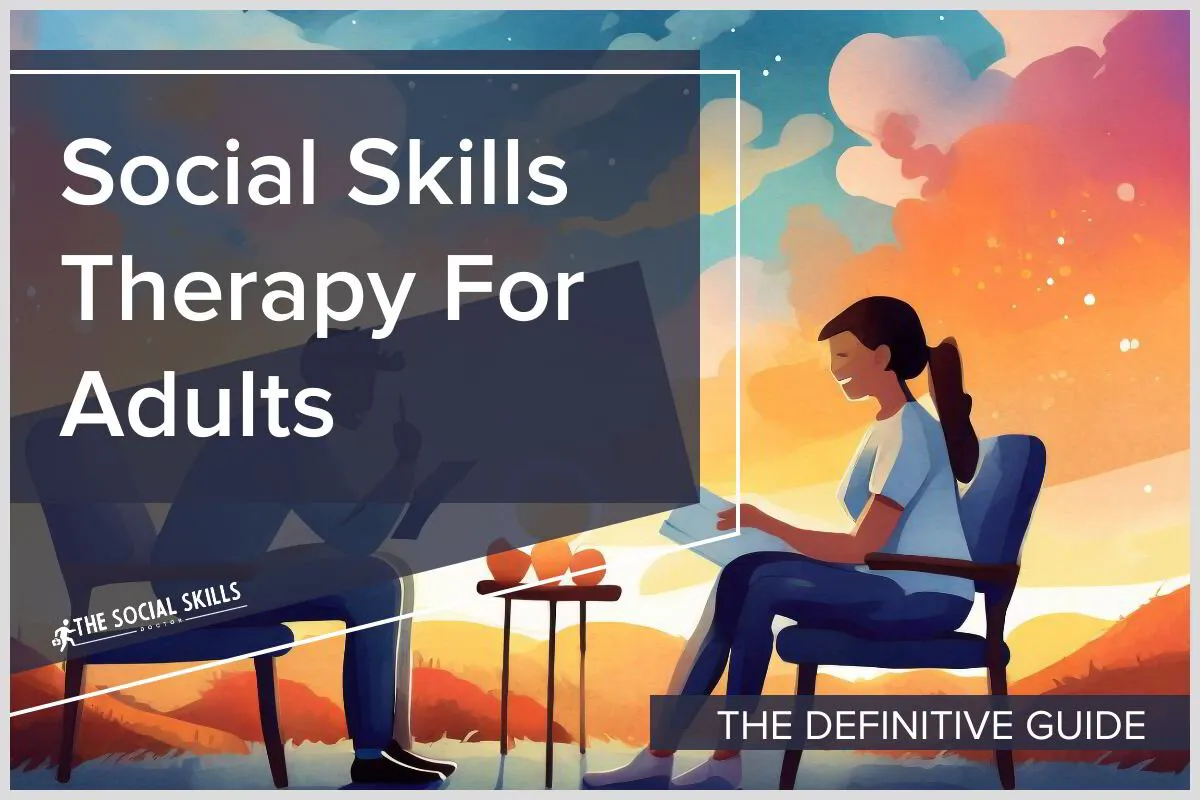SOCIAL SKILLS THERAPY FOR ADULTS: THE DEFINITIVE GUIDE
Dear reader,
Social skills deficits cover a range of hurdles in effectively navigating social interactions, such as communication, eye contact, recognize and correctly interpreting nonverbal cues, and engaging in appropriate conversation topics. So if you recognize any of these following common indicators in yourself, keep reading:
- Initiating or sustaining conversations becomes arduous.
- Discomfort and anxiety arise during social encounters.
- Your mind goes blank leaving you with nothing to contribute.
- Inserting your opinions assertively into conversation is hard to do.
- Facial expressions and body language can be challenging to interpret.
- Forming meaningful friendships or relationships is difficult.
Okay, you're still reading so you already know that these deficits have far-reaching consequences that go beyond personal connections and into your professional life as well. In personal relationships, they can lead to isolation, loneliness, and unfulfillment. Professionally, ineffective communication makes it difficult to build rapport with colleagues, leaves you with poor networking abilities, and hinders career advancement opportunities.
By acknowledging these signs and understanding their impact on your life's trajectory, you can empower yourself to take proactive steps towards enhancing your social skills through a choiceof different therapy and coaching options. Remember that you're not alone—countless adults have faced similar obstacles and tried different approaches designed specifically for improving social, interpersonal, and people skills.
Therapy Options for Improving Social Skills

Social skills therapy for adults can be highly beneficial in improving communication and interpersonal relationships. It focuses on developing effective listening, empathy, and assertiveness skills. Through guided practice and feedback, individuals can enhance their social interactions and build stronger connections with others.
There are a variety of therapy options available that can help adults enhance their abilities in social settings. In this section, we will cast an eye over some of these therapeutic approaches and how they can empower you to thrive socially.
Cognitive-Behavioral Therapy:
CBT is a popular therapeutic approach that focuses on identifying and transforming negative thought patterns and behaviors. By mastering CBT techniques, you'll develop more positive ways of thinking that will significantly impact your interactions with others. Through targeted strategies, such as anxiety management and self-confidence building exercises, CBT equips you with the tools needed to overcome obstacles hindering your ability to connect meaningfully.
Neuro Linguistic Programming:
NLP as a system is diverse and blends talking therapy, modeling of excellence, and a host of strategies for having breakthroughs in thinking and rapidly deprogramming the mind of faulty thinking, such as phobias and bad habits among other things. Whilst NLP is not designed to teach you specific social skills it will be a powerful ally in removing mental barriers to developing them.
Group Therapy:
Here you can practice real-life social scenarios while getting feedback from both peers and therapists who should understand your challenges firsthand. That's exactly what group therapy offers! Engaging in role-playing exercises, discussions, and collaborative activities within a safe environment helps sharpen essential communication skills like empathy, assertiveness, conflict resolution.
Social Skills Online Training Programs:
Designed for adults looking to improve their social skills, the better online programs will have a structured mix of text, audio, video, and experiential training content to cater for various different learning styles. Normally they will be hosted on a membership site where you can login and complete the modules from your own home whenever suits you.
Online courses will often be more specialized so you have a better upfront understanding of what the main focus of their course is, such as dating, charisma, overcoming shyness etc. The therapists and coaches that create these courses will have trained in one or more different therapy approaches and often have personal experience of what they are teaching.
As an example, perhaps the most progressive and powerful online social skills course of all 'The Multiversal Mind Method' has blended together techniques and approaches from such diverse areas as Neuro Linguistic Programming, Memory Specialization Techniques, Clinical Hypnotherapy, and even some Kung-fu philosophy. This program does not focus on any one small area of social interaction but instead focuses on giving you a complete social skills upgrade on a surprisingly short timescale.
Individual Counseling:
Sometimes personalized attention is key when addressing specific hurdles impeding your progress towards better social skills mastery. Individual counseling allows for one-on-one sessions tailored precisely to meet your unique needs. A good therapist will work closely with you to uncover any underlying issues that may be holding you back in social situations. By exploring past experiences or traumas, you'll gain valuable insights while acquiring practical tools for personal growth.
Further Therapies:
- Timeline therapy - is a hypnotic approach developed by NLP practitioner Tad James and focuses on finding the origins of past issues and traumas and overwriting them.
- Hypnotherapy - Due to its portrayal on TV and stage, hypnotherapy is quite misunderstood. However, for the right person this can be a very pleasant and effective and gentle approach to retraining the mind
- Eye Movement Desensitization and Reprocessing - EMDR is a form of psychotherapy devised by Francine Shapiro and is a very effective approach to resolving the symptoms of past trauma
There are more therapy styles and approaches such as EFT (Emotional Freedom Technique) all of which have a common theme of finding and taking the emotional heat out of past experiences that are now causing mental barriers to free-flowing social interaction.
It's important to remember that the effectiveness of each therapy option varies depending on individual needs, preferences, and belief sets. Some individuals thrive in group settings where shared experiences provide invaluable learning opportunities, while others prefer the focused attention offered by individual counseling sessions. Still others will prefer to learn separately , without the attention of others, or the risk of personality clashes.
Choosing the Right Therapy for You

When it comes to enhancing your social skills as an adult, selecting the right therapy is very important. Each person has their own unique needs and preferences, so it's vital to consider a few key factors before making a decision. Here are some important points to keep in mind:
1. Personalized Approach. Look for a therapy program that offers a personalized approach tailored specifically to your goals and challenges. Social skills deficits can manifest differently in each individual, so finding a therapist who truly understands your specific needs is essential.
2. Treatment Methods. Familiarize yourself with various therapy options available for improving social skills, including cognitive-behavioral therapy (CBT), group therapy, or specialized training programs designed specifically for enhancing social abilities. Take the time to research these methods and determine which one aligns best with your learning style and personal circumstances.
3. Inspiring Success Stories. Dive into success stories from individuals who have undergone social skills therapy to gain insight into what outcomes you can expect from different approaches. These stories offer valuable insights into how effective certain therapies are at addressing specific challenges.
4. Trusted Recommendations. Seek recommendations from trusted sources or healthcare professionals who may be knowledgeable about reputable therapists specializing in adult social skill development.
5. Cost Considerations. Understand the financial implications of undergoing therapy aimed at improving your social skills since costs may vary depending on factors such as location and duration of treatment sessions.
6. Therapy Setting Preferences. Consider whether you prefer to do this virtually through your pc, one-on-one sessions with a therapist, or if you would benefit more from group settings where you can practice interacting with others facing similar challenges head-on.
7. Supportive Environment. Look for therapists who create safe environments where individuals feel at ease expressing themselves without any judgment or fear of failure. Remember, finding the perfect therapy to enhance your social skills is a personal journey. Take your time to thoroughly research and explore different options before making a decision.
What to Expect in Social Skills Therapy

Now lets delve into what you can expect from a transformative journey through social skills therapy. From the structure of a typical session to the powerful techniques and exercises employed by therapists and coaches.
A Glimpse into a Typical Therapy Session. During each therapy session, your therapist will guide you towards overcoming obstacles with feedback and practical strategies, techniques, and exercises designed to develop your interpersonal abilities.
For example - Role-playing where you will step into different scenarios under observation from the therapist, who will provide guidance along the way.
Communication Skills Training. Master active listening, assertiveness, non-verbal cues interpretation, conflict resolution - all essential tools for effective communication.
Emotional Regulation. Discover how emotional intelligence can revolutionize your interactions, as therapists teach you powerful techniques for managing emotions. You can also get instant access to the Social & Emotional Intelligence Masterclass.
Social Problem-Solving. Learn how to navigate complex social situations with ease by honing analytical skills that lead to creative solutions.
The Roadmap Towards Success. The timeline for improvement is as unique as each individual embarking on this empowering journey. Factors such as the severity of social skills deficits or underlying conditions like anxiety or autism spectrum disorder (ASD) play a role in your progress.
Conclusion
Remember that Rome wasn't built in a day - true growth takes time! However, with unwavering dedication both inside and outside social skills sessions, remarkable transformations are within reach. It's important to note that everyone progresses at their own pace. While some may experience noticeable improvements within weeks, others may require several months or longer to witness significant changes.
Comparing your progress to others is neither helpful nor accurate; focus on your personal growth and celebrate every milestone along the way. By actively participating in therapy sessions, diligently practicing the skills you learn outside of therapy, and maintaining a positive mindset, you will unlock the full potential of social skills therapy and reap its countless benefits.

